

Table of Contents
- Introduction
- What is Jamabandi Records?
- What Are The Services Provided in the Jamabandi Portal?
- How to Check the Availability of Deed Registration Appointment Slots?
- Documents Required For Deed Registration on Jamabandi Portal
- Where to View Jamabandi Land Nakal Online?
- Where to View Jamabandi Land Nakal Online?
- How to Check Cadastral Map in Jamabandi Portal Haryana?
- How to Check Collector Rates at Jamabandi Portal
- Mutation of Property
- Mutation Fee for Property In Haryana
- How to Check Mutation Orders on Jamabandi Haryana Land Records?
- Conclusion
- Faq's
Introduction
In the state of Haryana, Jamabandi is one of the most important documents required if you own land in Haryana. It essentially is a document that includes the Record Of Rights (ROR) along with records of cultivation, ownership, and updated information on rights in land.
To access the land records in Haryana, the Jamabandi portal is a website developed to enable citizens to check and obtain land records of the state of Haryana. Through the Jamabandi portal, you can access land records such as mutation, registration, and records.
In this article, we will guide you about Jamabandi Records, How to check Jamabandi Records Online, What services are available in the Jamabandi portal, how to view mutation orders, how to check court case orders, how to check for registered deeds, and more.
Official page of Jamabandi Haryana : https://jamabandi.nic.in/DefaultPages/Default
What is Jamabandi Records?
Jamabandi is a crucial document containing information about land rights, cultivation details, ownership, and the latest updates on various land-related rights. Every 5 years, this document is revised with the collaboration of the Patwari, who compiles the data, and the Revenue Officer, who authenticates it. The finalized Jamabandi has two copies, one stored in the District Record Room and the other held by the Patwari.
The Jamabandi Record contains the following details:
- Details of the owner
- Details of the Cultivator
- Source of Irrigation
- Type and area of the land
- Khewat/Kasra, Khattoni, and Pati details
- Rent details paid by cultivator
What Are The Services Provided in the Jamabandi Portal?
Jamabandi Portal, set up by the Revenue Department of Haryana is an online portal where you can get all the land records of Haryana.
Services of Jamabandi Portal for Property Owners in Haryana
- Checklist for Deed Registration
- Standard Operating Procedure (SOP) for Deed Registration.
- Deed templates.
- Collector rates.
- Check Deed appointment availability.
- View registered Deeds and stay orders.
- Controlled/urban area details.
- Nakal details by owner name.
- View mutation orders.
- Check the status of the mutation.
- Mutation status of Deeds.
- View cadastral maps.
- Check revenue court status or civil court status.
- Check property tax details.
- Integrated property-wise transaction details.
Also, you can find details about:
- Owner of the property
- Kashatkar
- Makbuja
- Total land
- Irrigation
- Majrua
- Gair majrua
- Khewat/khaton
Also Read: 7/12 Utara Mumbai: Access Land Records with Mahabhulekh 2024
How to Check the Availability of Deed Registration Appointment Slots?
Step 1: Go to the official Jamabandi portal of Haryana. You can typically find this by searching online or visiting the official website of the Haryana Revenue Department.
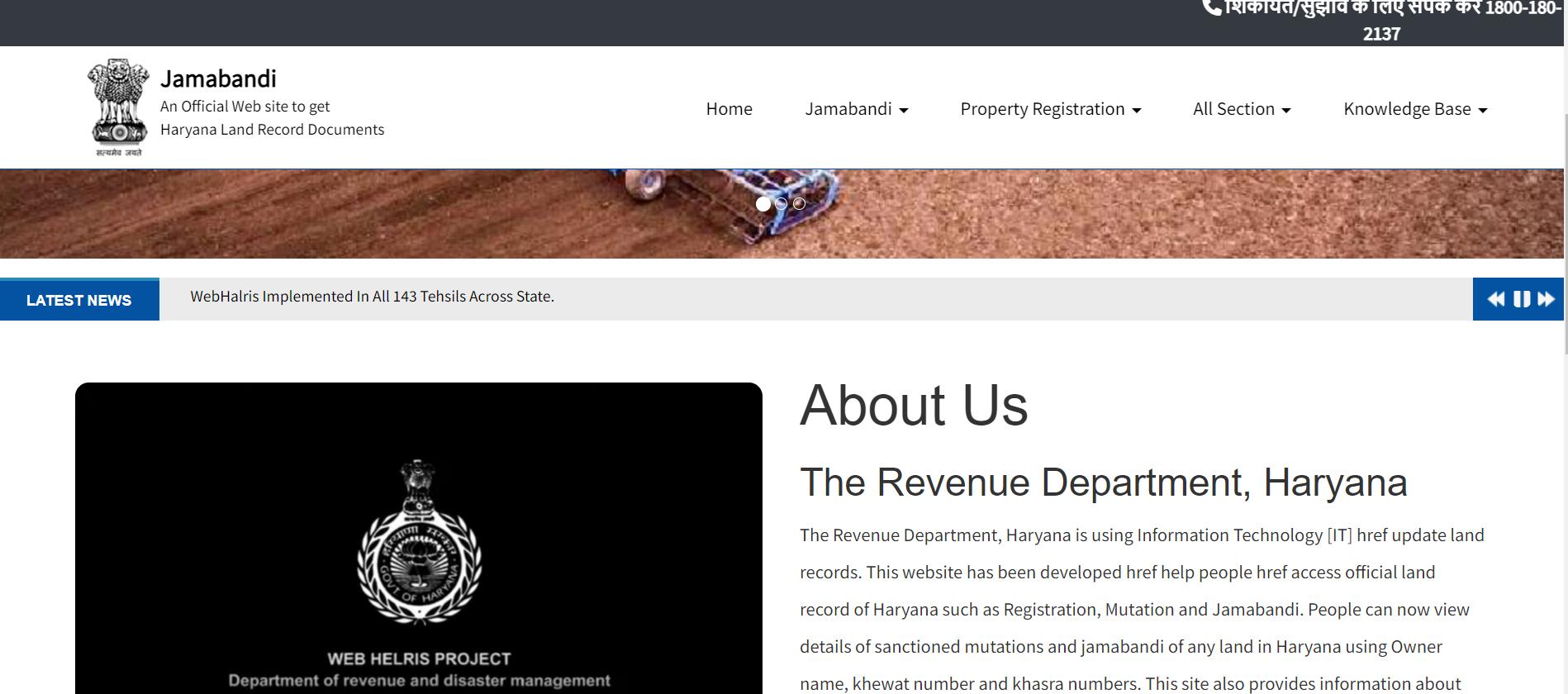
Step 2: On the right side, there is a drop-down menu titled property registration, click on it. Another drop-down menu will open, click on the firat option titled Deed Registration Appointment from the menu bar
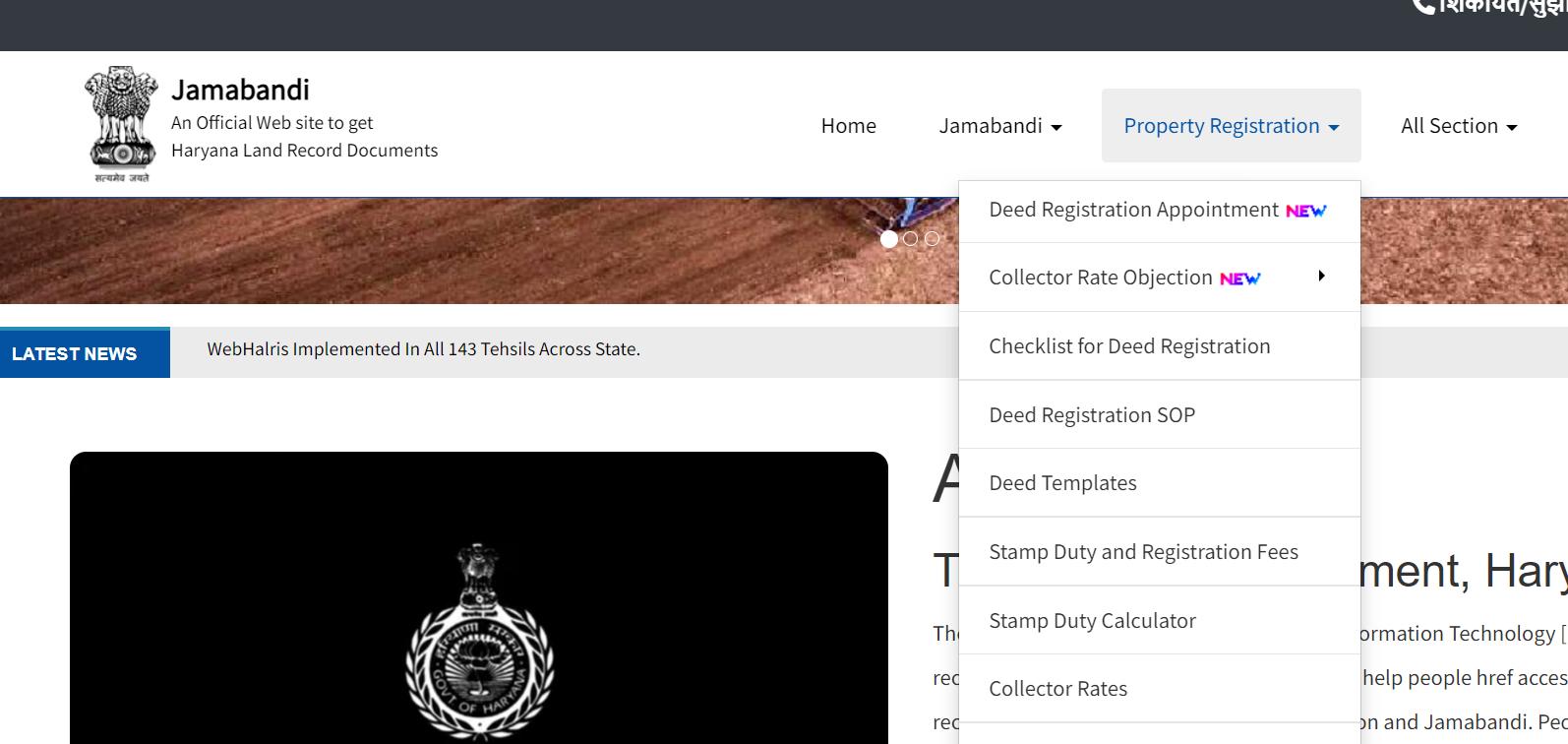
Step 3: Once you click on it you will be taken to a new page, Login with your mobile number to get OTP
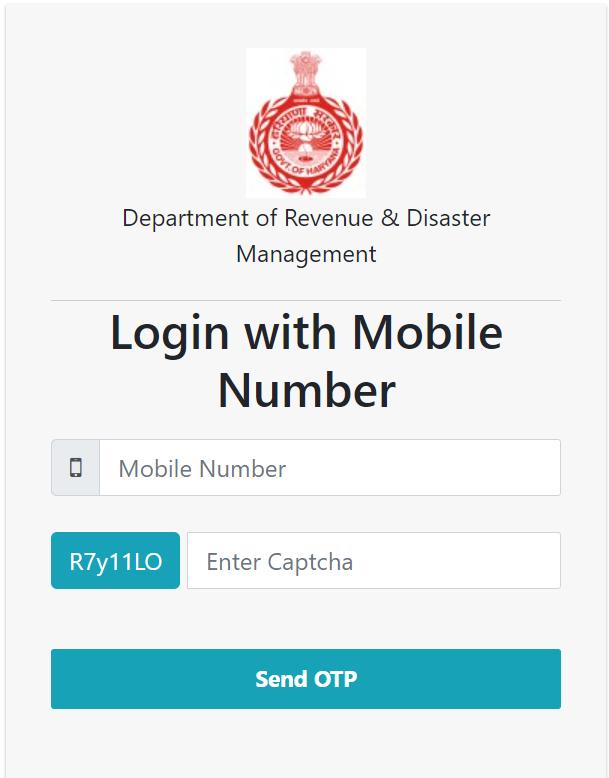
Step 4: You will be taken to a new page which is like a form, select the option - Normal appointment or Tatkal appointment, and fill in the details like location of property, sub location of property
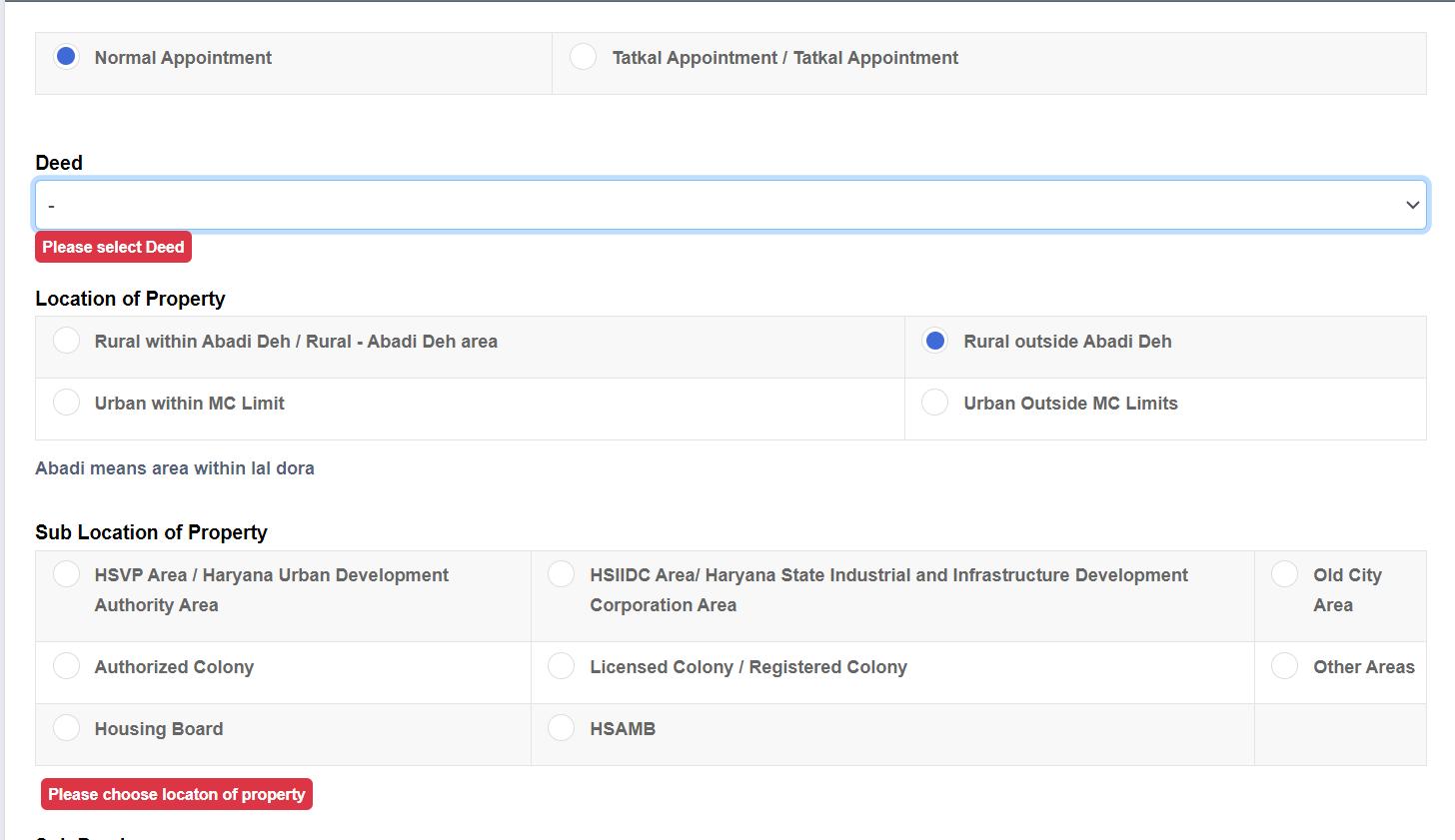
Step 5: After successfully booking the appointment, the portal may provide a confirmation. Additionally, make sure to note any required documentation or information for the appointment.
Documents Required For Deed Registration on Jamabandi Portal
- Sale Deed or Transfer Document: The primary document reflecting the transfer of ownership rights from the seller to the buyer. It should be executed on stamp paper and signed by both parties.
- Identity Proof of Buyer and Seller: Aadhaar card, passport, voter ID, or any other government-issued identity document.
- PAN Card: PAN (Permanent Account Number) details of both the buyer and seller.
- Property Card or Khewat Number: Information about the property, including the property card or Khewat number.
- Passport Size Photographs: Passport-sized photographs of both the buyer and seller.
- No Objection Certificate (NOC) from Concerned Authorities: If applicable, a No Objection Certificate from the local municipal authority or other relevant authorities.
- Proof of Payment of Stamp Duty and Registration Fees: Receipts or documents confirming the payment of stamp duty and registration fees.
- Encumbrance Certificate: A certificate confirming that the property is free from any legal dues or encumbrances.
- Affidavit of the Seller: An affidavit by the seller declaring the ownership of the property, history, and any other relevant details.
- Proof of Up-to-Date Property Tax Payments: Receipts or documents verifying that property taxes are up-to-date.
- Copy of Previous Deed or Documents: Previous deeds or documents related to the property, if applicable.
- Possession Certificate: A certificate confirming that the buyer has taken possession of the property.
Where to View Jamabandi Land Nakal Online?
Step 1: Go to the Jamabandi Official Portal.
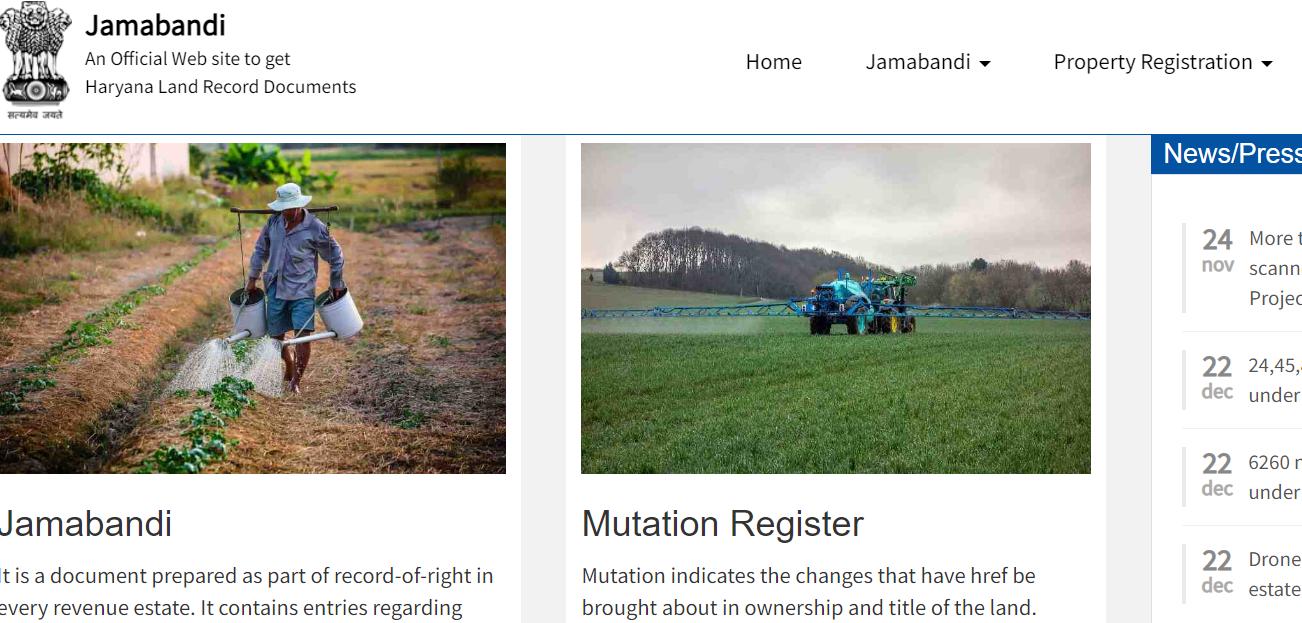
Step 2: For Land Nakal, Click on Jamabandi and click on either first option to check the copy of Jamabandi Nakal.
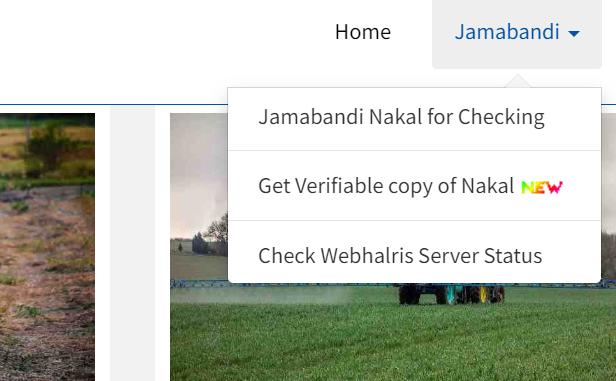
Step 3: Once you click on Jamabandi Nakal for Checking, you will be taken to a new page where you will have to input the Nakal details.
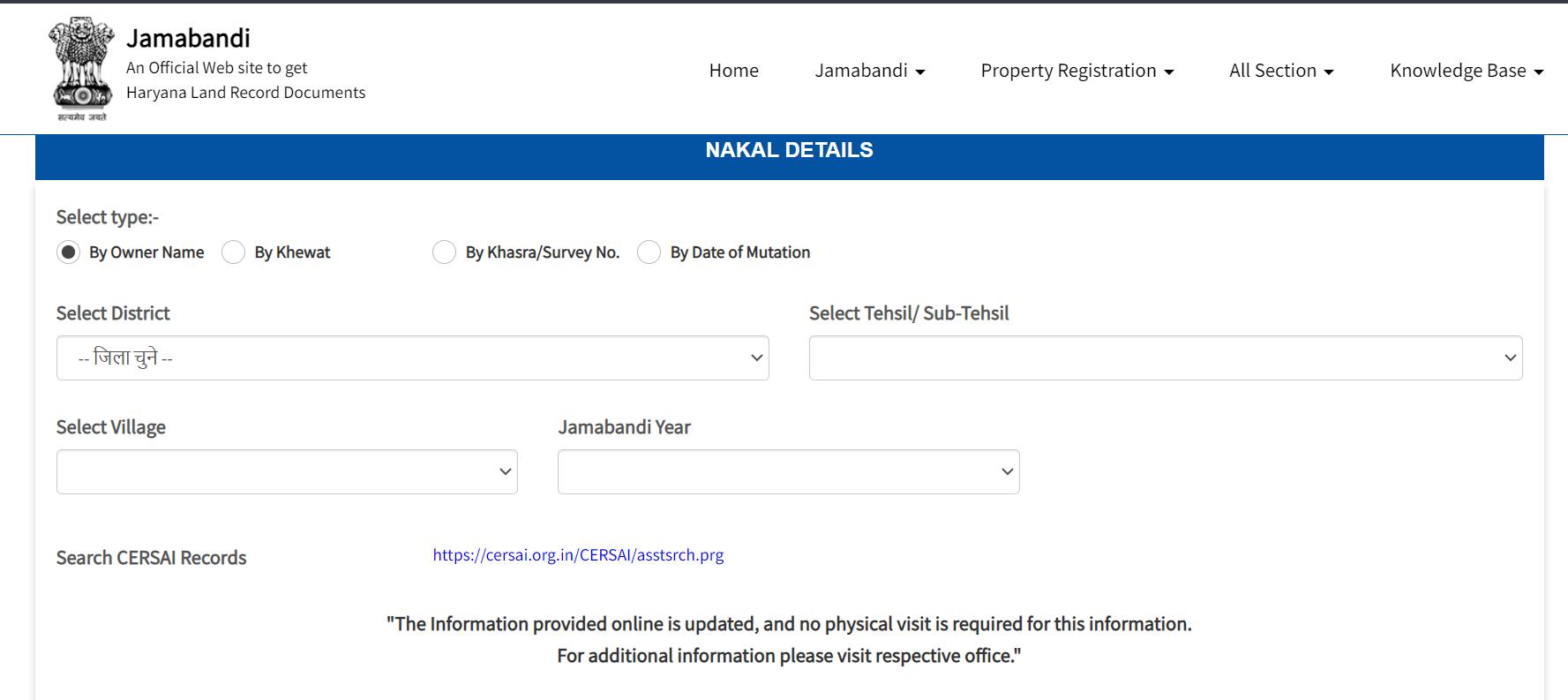
Step 4: If you want to download the Land Nakal, then click on get a verifiable copy of Nakal
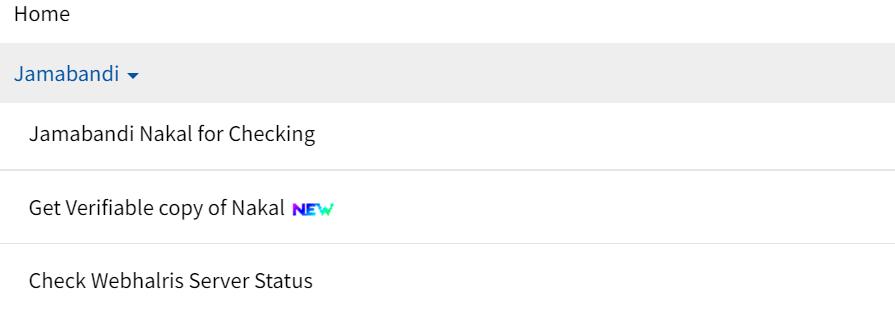
Where to View Jamabandi Land Nakal Online?
Step 1: Visit the official website
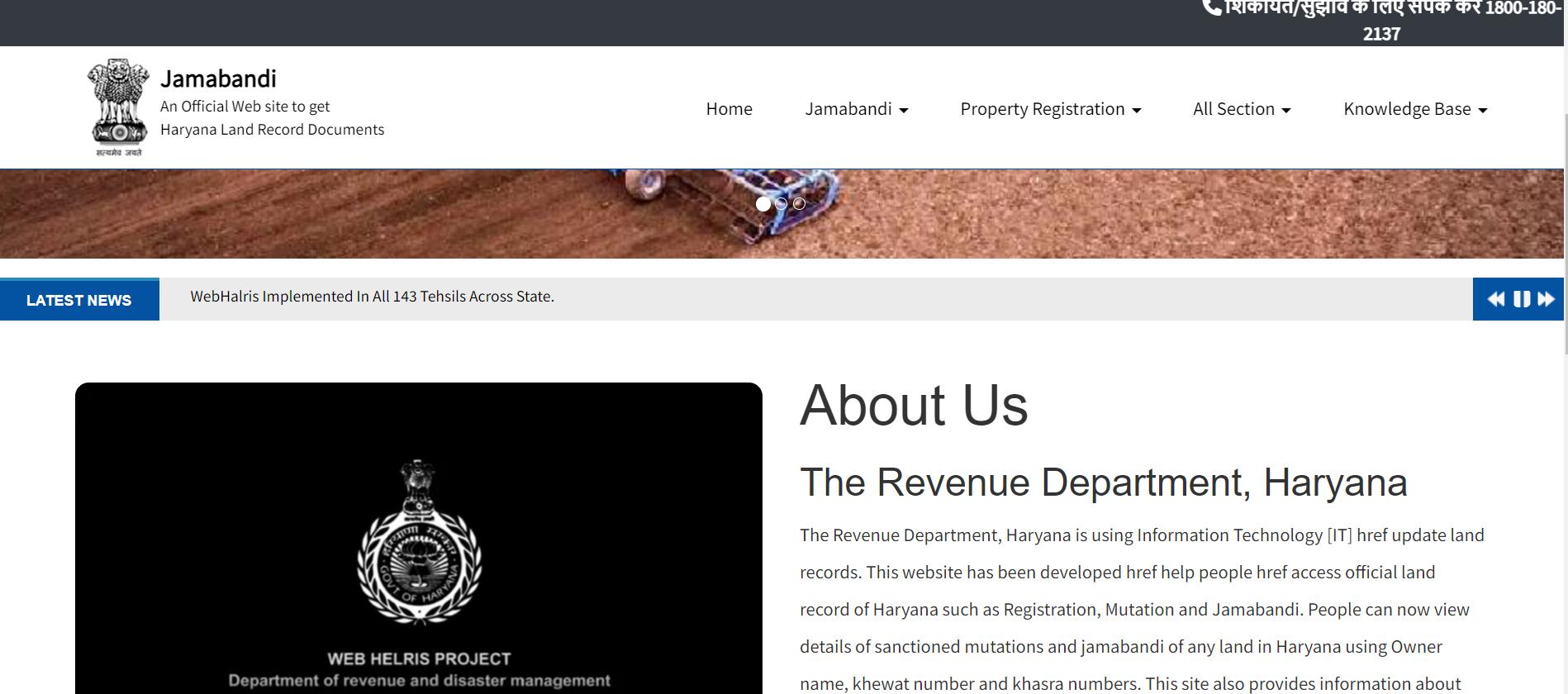
Step 2: Click on All section, a drop down menu will appear, scroll down and at the bottom you will get the option of court cases. Click on it and you will be redirected to another page called the Revenue Court Cases and login in to the page to access case status, judgement, daily orders and more.
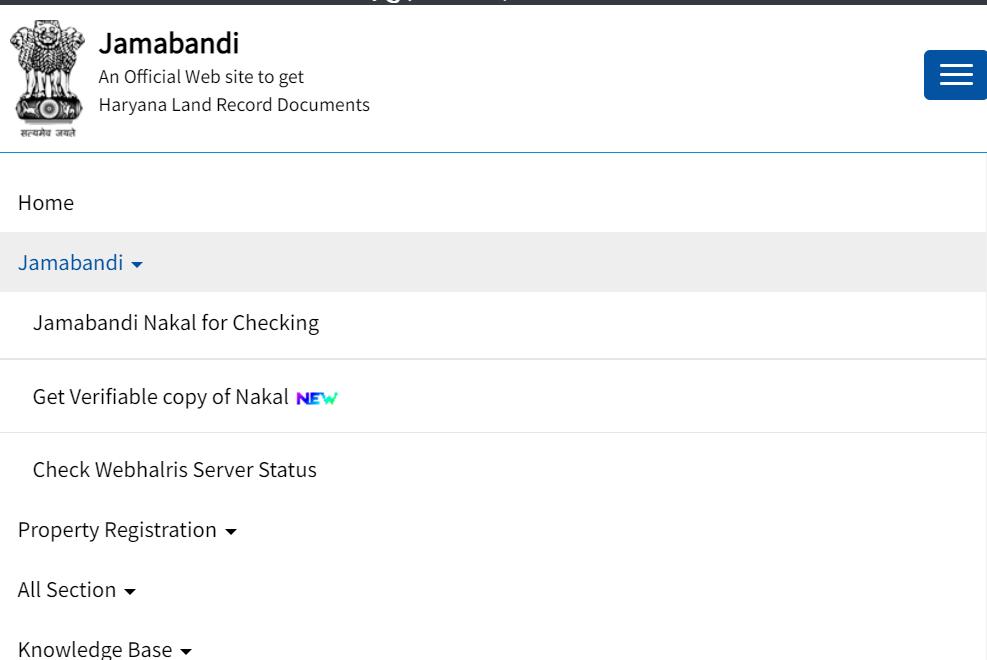
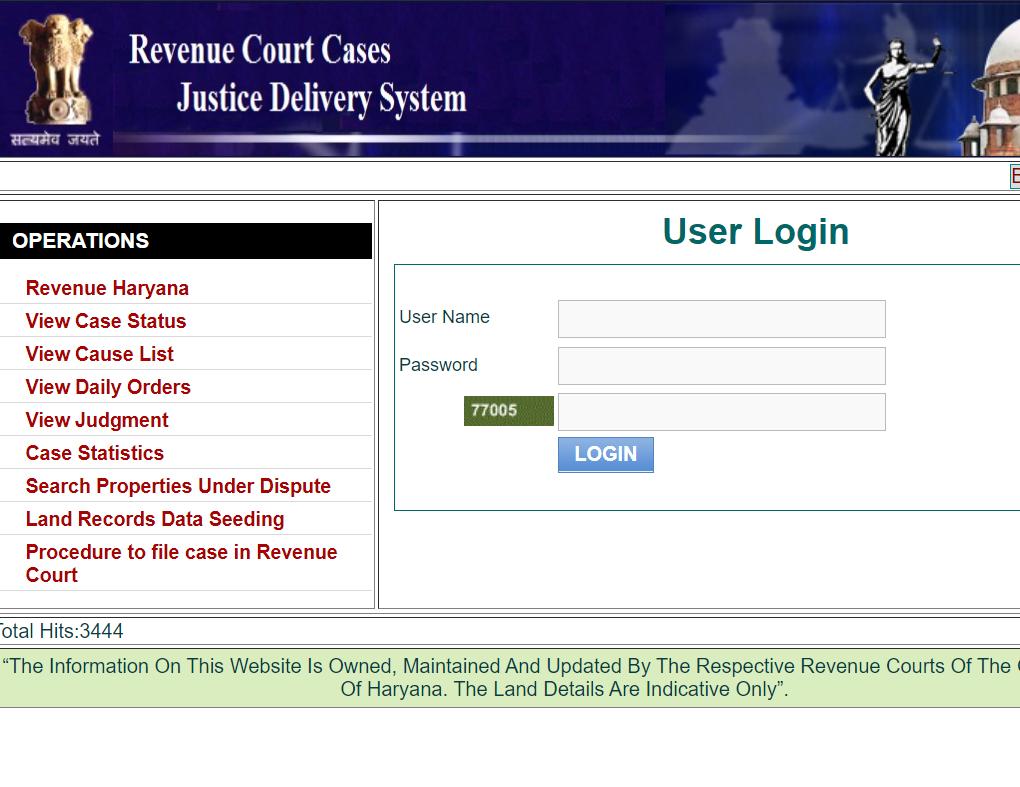
Also Read: 7/12 Utara Pune: Accessing Land Records with Mahabhulekh
How to Check Cadastral Map in Jamabandi Portal Haryana?
Step 1: Visit the official website of Jamabandi Haryana website
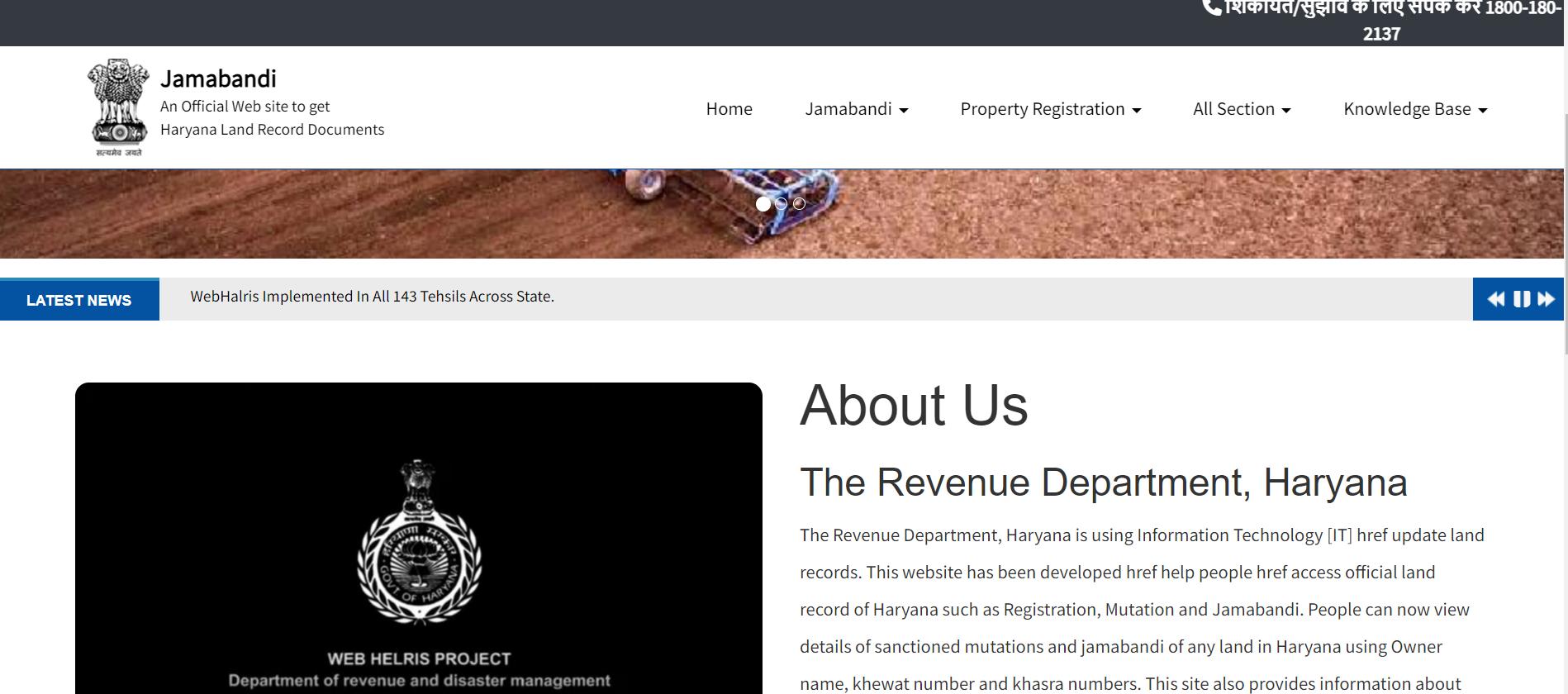
Step 2: Go to the All section and scroll down to the section of cadastral maps and click on it. A separate page will be displayed with a map. Click on the map and location to find out your desired location.
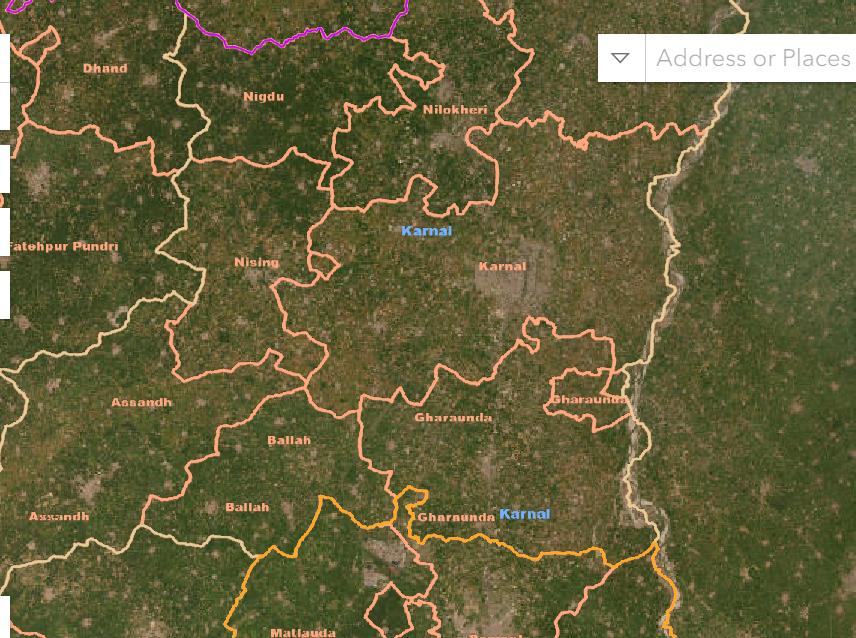
Step 3:Below the map are option to search owners by Khasra, khewat and also Jamabandi Nakal. A option of routing is also available to search the best route for a particular land parcel.
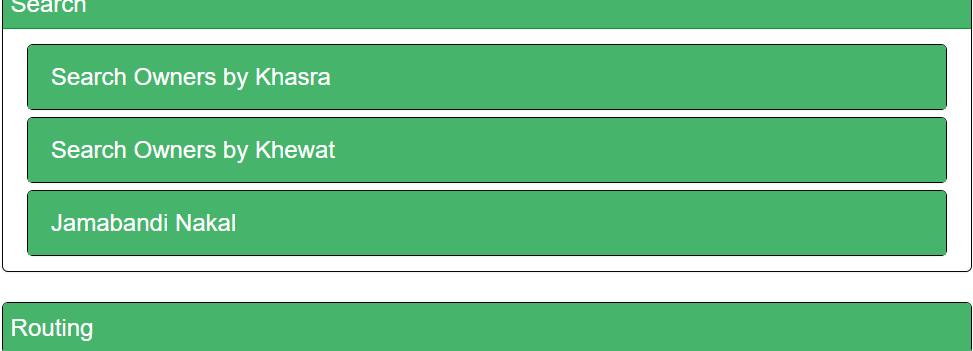
How to Check Collector Rates at Jamabandi Portal
Step 1: Visit the Jamabandi official website and click on Property Registration on the homepage.
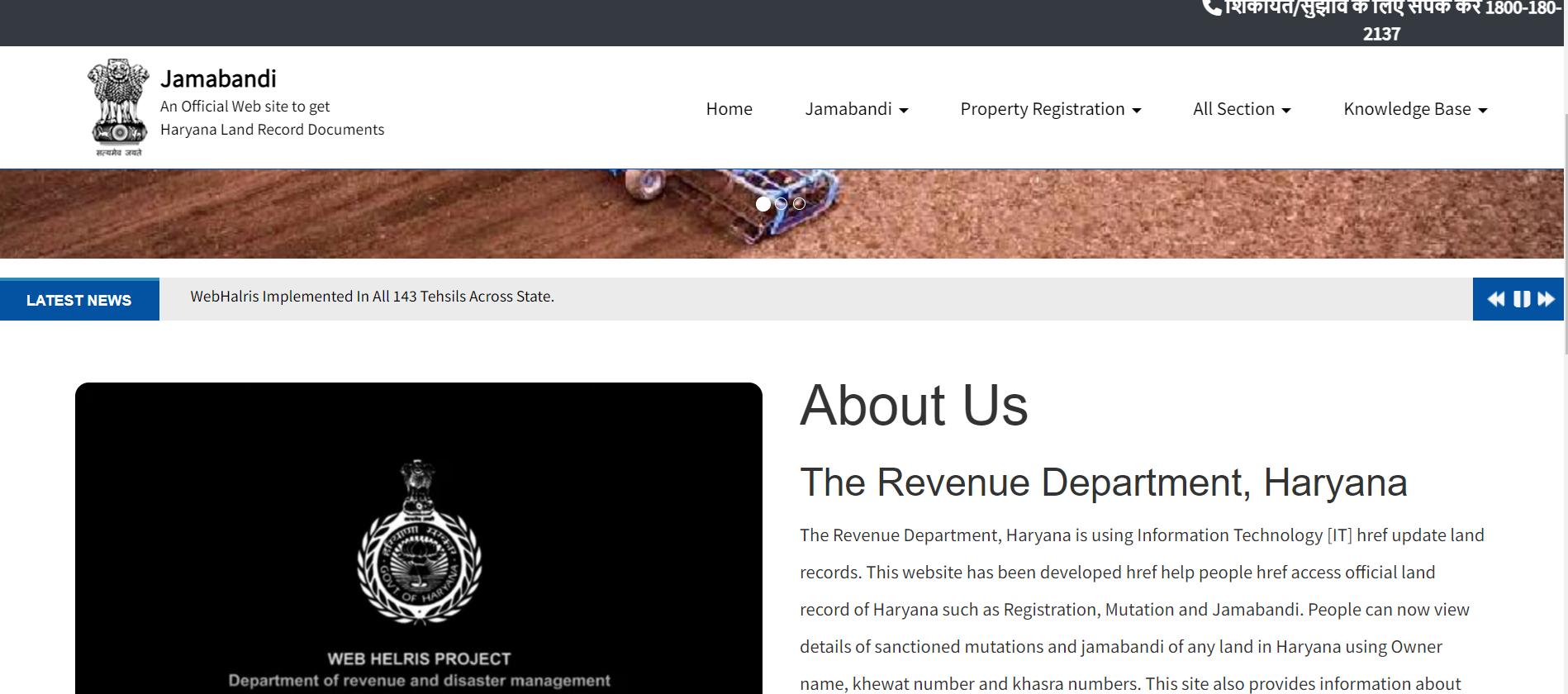
Step 2: In the drop-down menu, scroll down to collector rates option.
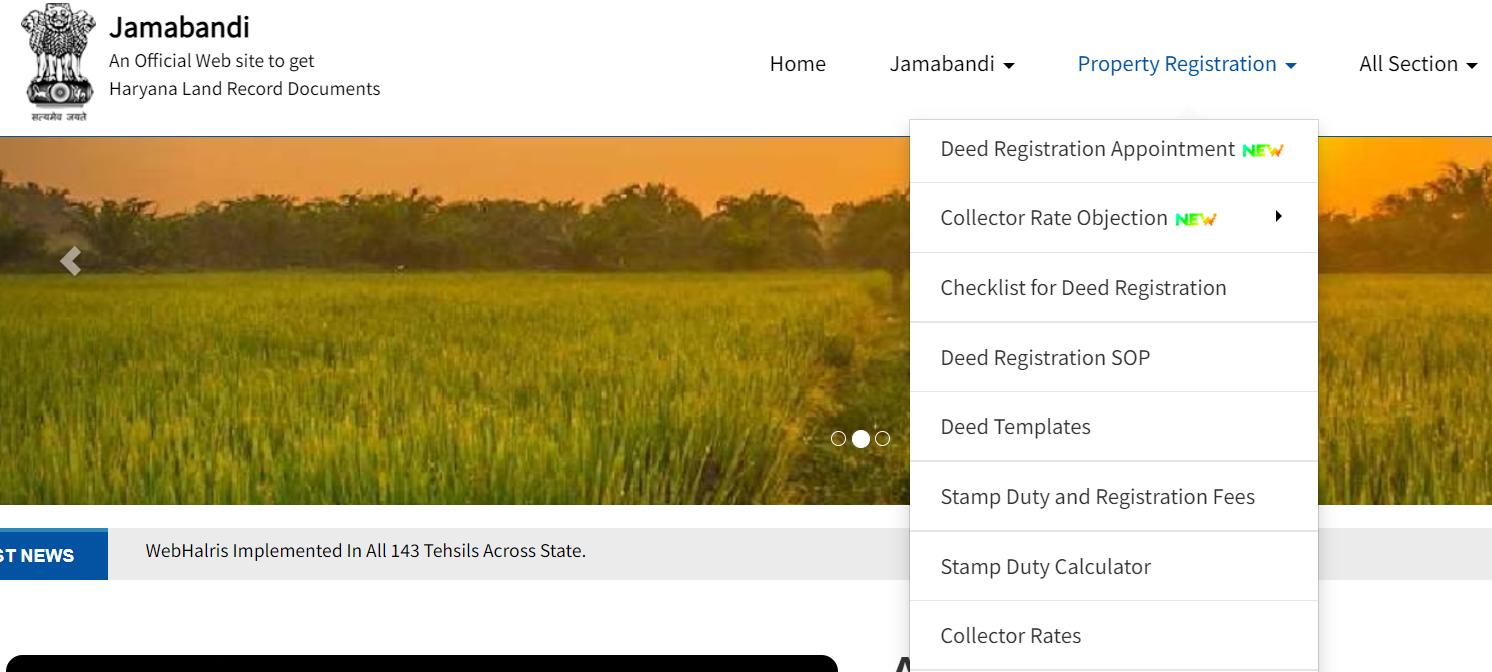
Step 3: Click on the Collector Rates option and fill in the details like district, Tehsil, Period, and Village, and then proceed to click on submit.
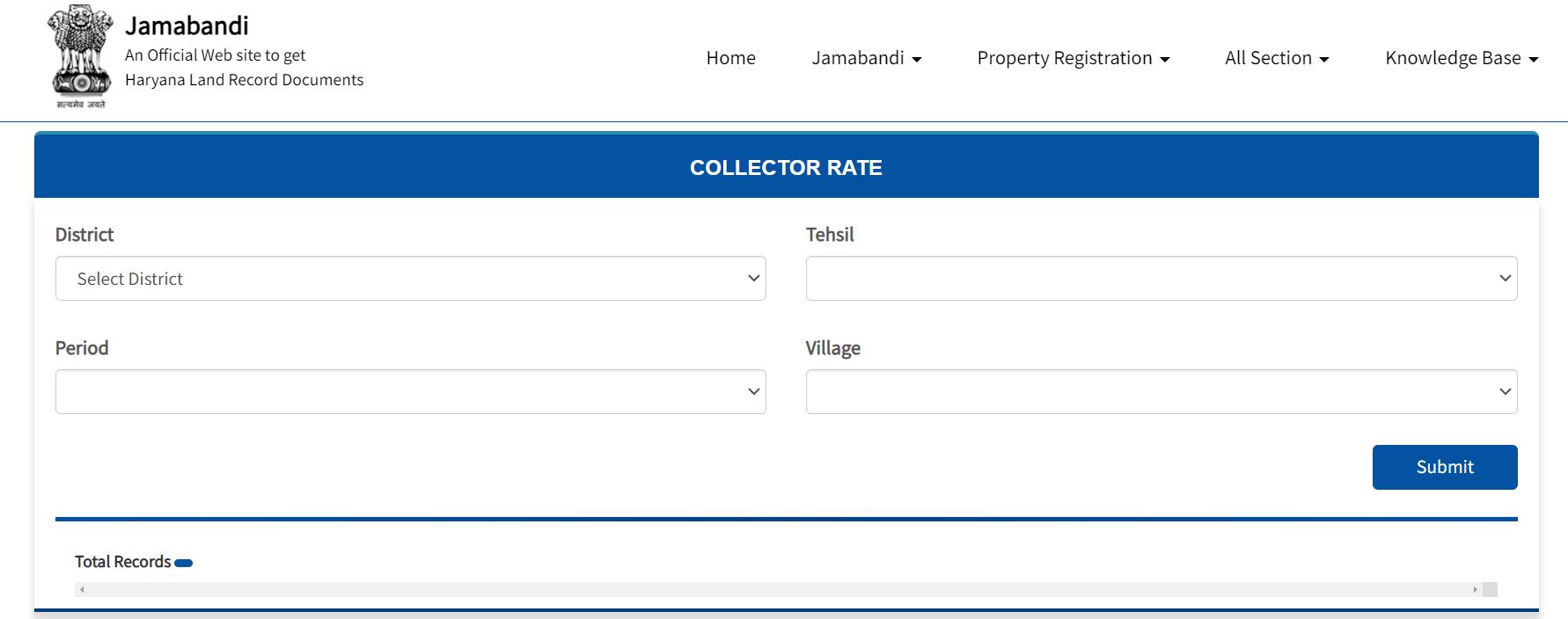
Mutation of Property
Mutation of property refers to the process of updating the ownership records of a property in the land revenue department. It involves changing or recording the title of a property in official records to reflect the current details of the owner. Mutation is an essential step in the property ownership transfer process and is usually done after the sale or transfer of property.
Key Points About the Mutation of Property:
Purpose: The primary purpose of mutation is to update the land revenue records to reflect the change in ownership. This helps in maintaining accurate and up-to-date records of property ownership.
Transfer of Ownership: Mutation is typically required when there is a transfer of ownership due to sale, inheritance, gift, or any other legal means. It ensures that the n name of the new owner is officially recognized by the land revenue department.
Legal Importance: Mutation does not confer ownership rights but is a legal recognition of the change in ownership. It is important for establishing legal rights and responsibilities related to the property.
Verification of Documents: To initiate the mutation process, the property owner needs to submit relevant documents such as the sale deed, death certificate (in case of inheritance), and other supporting documents. These documents help verify the legality of the property transfer.
Revenue Records Update: Once the mutation process is complete, the revenue records, including the Jamabandi, are updated to reflect the current ownership details. This information is crucial for taxation and other administrative purposes.
No Objection Certificate (NOC): In some regions, obtaining a No Objection Certificate (NOC) from the local municipal authority may be required before applying for mutation.
Application Process: Property owners typically need to apply mutation to the local revenue or municipal authority. The application is processed based on the provided documents and verification procedures.
Property owners need to initiate the mutation process promptly after any change in ownership to ensure that the official records accurately reflect the current status of the property. The specific requirements and procedures for mutation can vary by jurisdiction, so it is advisable to consult with local authorities or legal professionals for precise guidance.
Also Read: Stamp Duty and Property Registration Charges in Delhi 2024
Mutation Fee for Property In Haryana
As per the Jamabandi Portal Rs 250 will be charged for entries related to the acquisition of an interest or right by a registered deed or an order of court or a decree or order of a Revenue Officer affirming or making a partition under Chapter IX of the Punjab Land Revenue Act, 1887, or if directing the incorporation in the record of acquisition of an interest or right by inheritance, or a private partition.
Apart from this, Rs 50 will be additionally charged as service charges per mutation, which must be deposited at the district level at the District Information Technology Society (DITS).
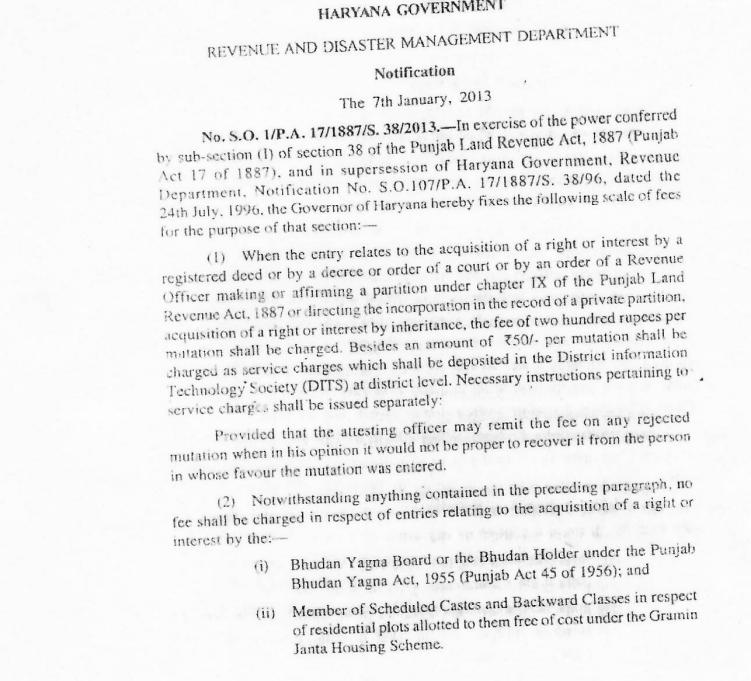
How to Check Mutation Orders on Jamabandi Haryana Land Records?
Step 1: Visit the official website of Jamabandi Haryana
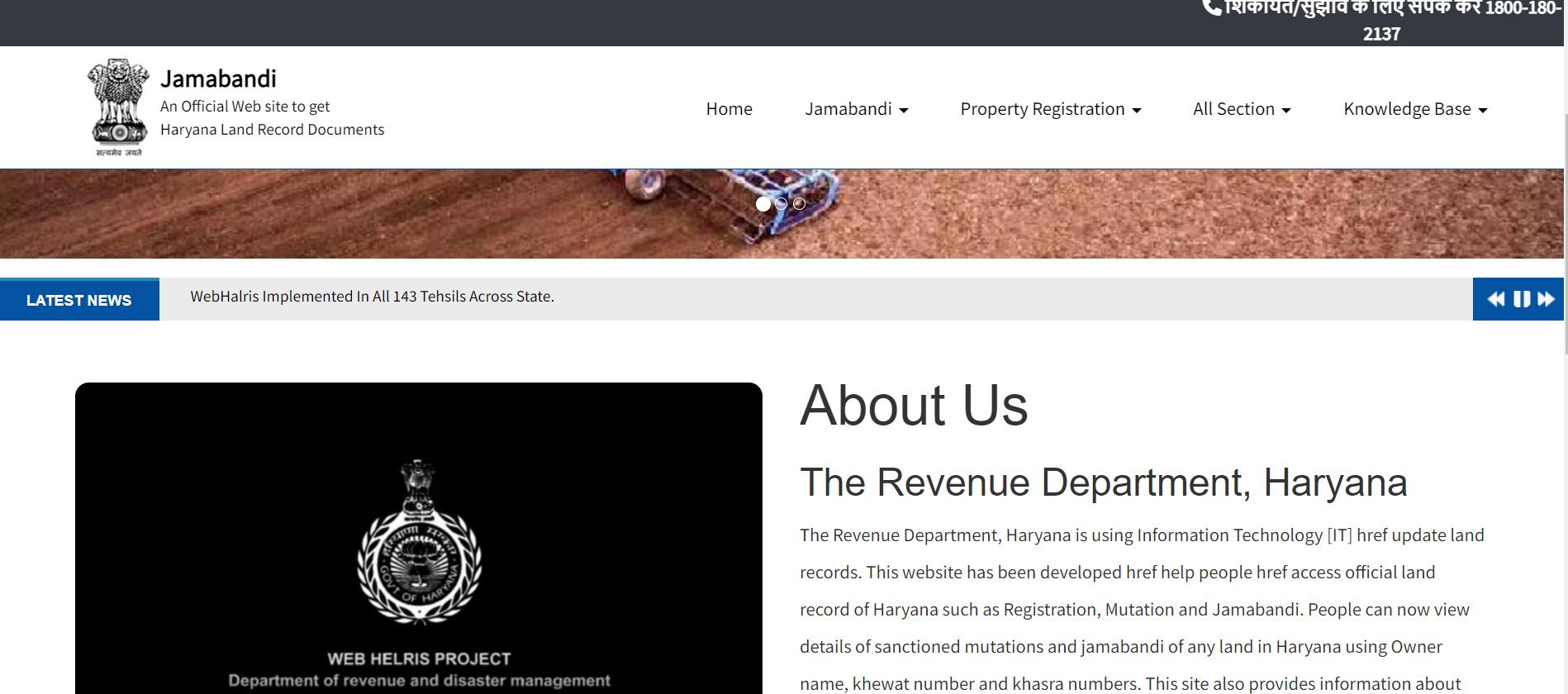
Step 2: Click on all sections and select Check Mutation Status
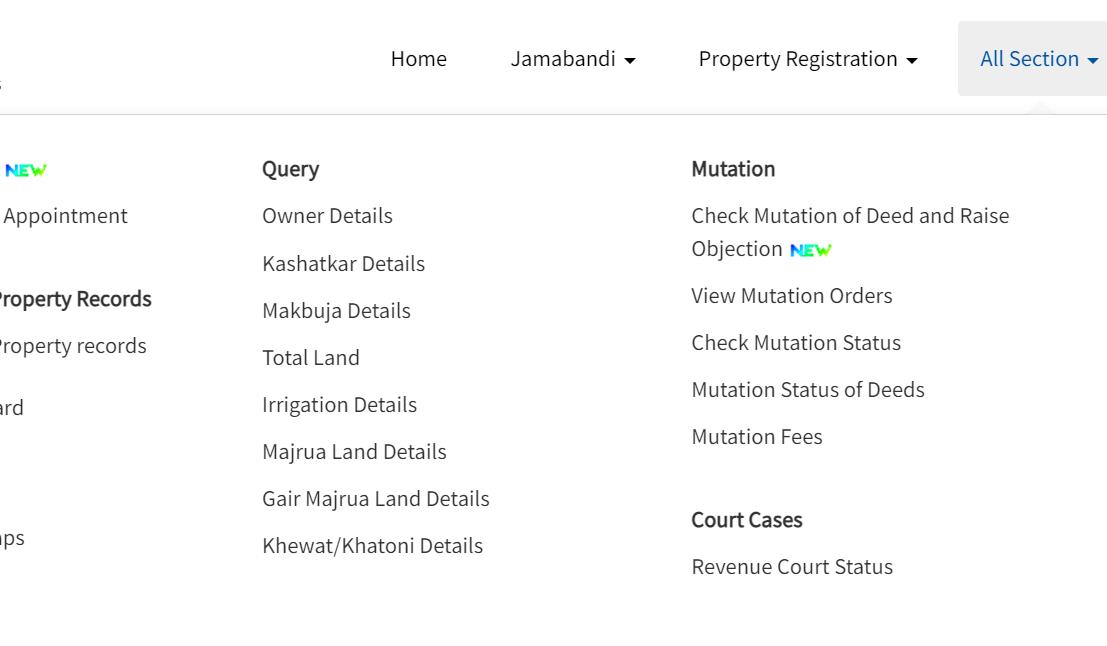
Step 3: You will be directed to a new page, select Tehsil, District, Village, Registry No, and Registry Date
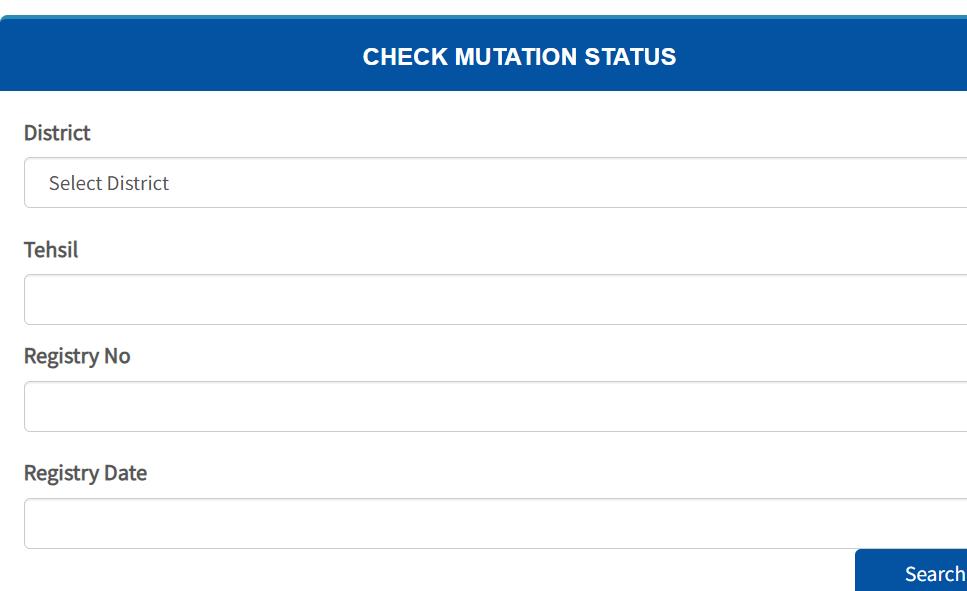
Conclusion
In conclusion, the Jamabandi portal in Haryana serves as a valuable resource for property owners, providing access to essential land records and facilitating various services related to property transactions. The article highlights the significance of Jamabandi records, the services offered by the portal, and the step-by-step process to check deed registration appointment slots.
It also outlines the essential documents required for deed registration on the Jamabandi portal, emphasizing the importance of completing the mutation process promptly after a change in ownership. The mutation fee details and the process of checking mutation orders are also explained.
The article further guides readers on accessing additional services such as viewing court cases, checking cadastral maps, and examining collector rates through the Jamabandi portal. The inclusion of step-by-step instructions for each service enhances user understanding and promotes transparency in property-related processes.
Overall, the comprehensive information provided in the article aims to empower property owners in Haryana, enabling them to navigate the Jamabandi portal efficiently and take informed steps in managing their property transactions and records.
explore further
Latest from Editorials
More from Publications
Resources
Dwello, for every home buyer, is a way to go from 'I feel' to 'I know', at no extra cost.


